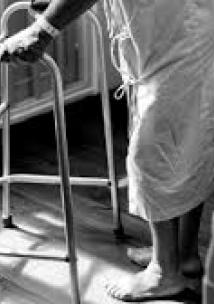"Let’s Get You Home" - Hospital Discharge Report

Summary
Old and frail People routinely leave the Royal Sussex County Hospital without proper discharge plans or advice. Community support often fails to meet expectations and does not help people cope independently at home. This review raises serious concerns about the quality and consistency of care planning and a lack of coordination and personalisation of care.
We interviewed 80 people in hospital and followed up on 49 people two months later at home. 41% of those who took part were over 80 years old.
Our Findings
- 59% people felt they were not involved or only partly in decisions about their care. Over half of these patients 53% felt they had not been asked for their opinion
- 39% of all patients felt the advice they had received while in hospital was not good enough to prepare them for being at home. 44% of all patients felt they were either not ready or only partly ready to return home.
- At the time we spoke to hospital patients, only 3% had received written advice on discharge planning, 11 people had received a hospital discharge letter, and only two people had received a written care plan.
Our Recommendations
We have provided 10 practical, achievable and inexpensive recommendations to the NHS and social care decision makers to improve the current situation:
- Improved patient communication from hospital to home: discharge planning to start within 24 hours after admission; written and verbal communication with every patient, consistent use of one document covering hospital to home patient advice.
- Improved communication between hospital and community-based staff.
- Hospital staff should maintain a written or electronic record of all discussions taken place with patient and family member/carer about the patient’s discharge. This information should be held in one form and patients and family members/carers should be given a copy.
- Patients and family members, carers or those in their support network should be involved in the decisions about the patient’s care both during their stay and also regarding what will happen to them on leaving hospital. They should be made fully aware of any choices and given the opportunity to say for themselves what kind of care they might need at home.
- Hospital and community care services should differentiate between patients living with, or regularly supported by family and/or friends, and those living alone and unsupported.
- The hospital should identify and implement workable actions that reduce the number of stranded patients, particularly for this age group (65 years old plus). Involving people (and their support network) at an early stage in their discharge plan would help identify the patient’s needs both in hospital and post discharge.
- The hospital should maintain services such as blood tests, x-rays and access to medical prescriptions during the weekend at the same level of service as during the week. Maintaining services at the weekend that reflect those offered during the week, could support the hospital in reducing the number of delayed transfers of care.
- All patients who are discharged home, should receive an assessment for independent living and where needed, provided with the appropriate support structure (adaptation) to enable independent living. Where possible, every patient should be enabled to live independently, with the provision of the right support structure, adaptations, and appropriate advice.
- All patients should be provided with written advice about living independently post-discharge. This should include advice about how to maintain good hydration and nutrition and how to access local support groups and activities e.g. the Brighton and Hove Ageing Well service.
- Better follow-up arrangements: Every patient to be provided with advice on who is likely to contact them and who they should contact should a problem arise. Each patient to be provided with a suitable support structure at home. Service provision discussed in the hospital should be followed through to service provided at home.
Response
In December 2018, we provided an Interim Report to the local NHS and City Council.
We welcome the response from the Brighton and Hove Clinical Commissioning Group (CCG), who have pledged to act to improve the information and advice given to people on discharge from hospital, and on our other recommendations.
The CCG response is printed in section 4 of this full report.
Download the report
You can download the report here. If you need this report in a different format, please contact us at office@healthwatchbrightonandhove.co.uk or 01273 234 041.

